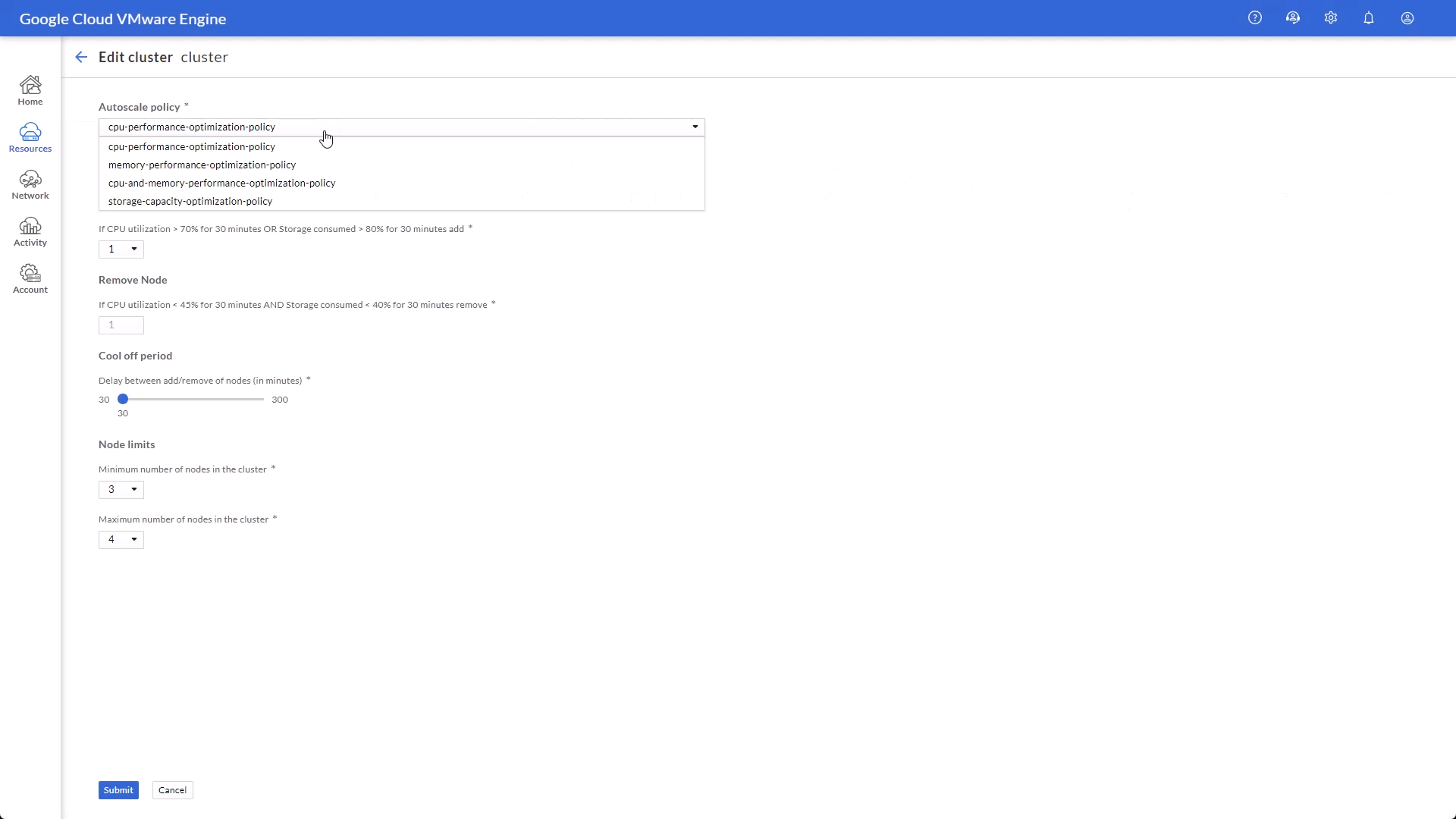Private Cloud Autoscaling with Google Cloud VMware Engine

Dynamically expanding resources and operational flexibility are the core tenants of cloud-based infrastructure and services. This is why autoscaling within Google Cloud VMware Engine is so invaluable for customers to weather high-resource-usage events while at the same time managing costs. Within each private cloud, the policy-based rules allow each cluster’s resources to grow and shrink depending on the policy specified. This post will discuss the four Google Cloud VMware Engine autoscaling policies, potential caveats, as well as give a demo video showing its use.
Autoscale Configuration
To add an autoscale policy to a private cloud, edit the cluster and choose the policy that matches the resources you want it to watch. Then select the number of nodes to add and remove, a cool off period, and the node limits, and click submit (see Figure 1 below). Yes, the configuration is that easy.
 Figure 1: Selecting an autoscale policy type.
Figure 1: Selecting an autoscale policy type.
There are four policies to choose from:
- CPU Performance Optimization
- Memory Performance Optimization
- CPU and Memory Performance Optimization
- Storage Capacity Optimization
One thing to keep in mind is that all optimization policies include a storage element for when total consumption is greater than 80%. More information about the policy details can be found in the Autoscale documentation page.
Of course, there are also some caveats. First, autoscaling cannot be used with single-node private clouds, so they must have a minimum of three nodes to assign a policy. Second, there must be enough quota assigned, and the region must have available nodes to satisfy the expansion request. If there is not enough quota or available nodes in your region/zone, the expand operation will not happen.
Demo
Takeaway
Using Autoscale policies is a great way for Google Cloud VMware Engine customers to manage unexpected high-resource consumption events while controlling costs, all automatically without user intervention.
For more information about Google Cloud VMware Engine, check out VMware Cloud Tech Zone.
